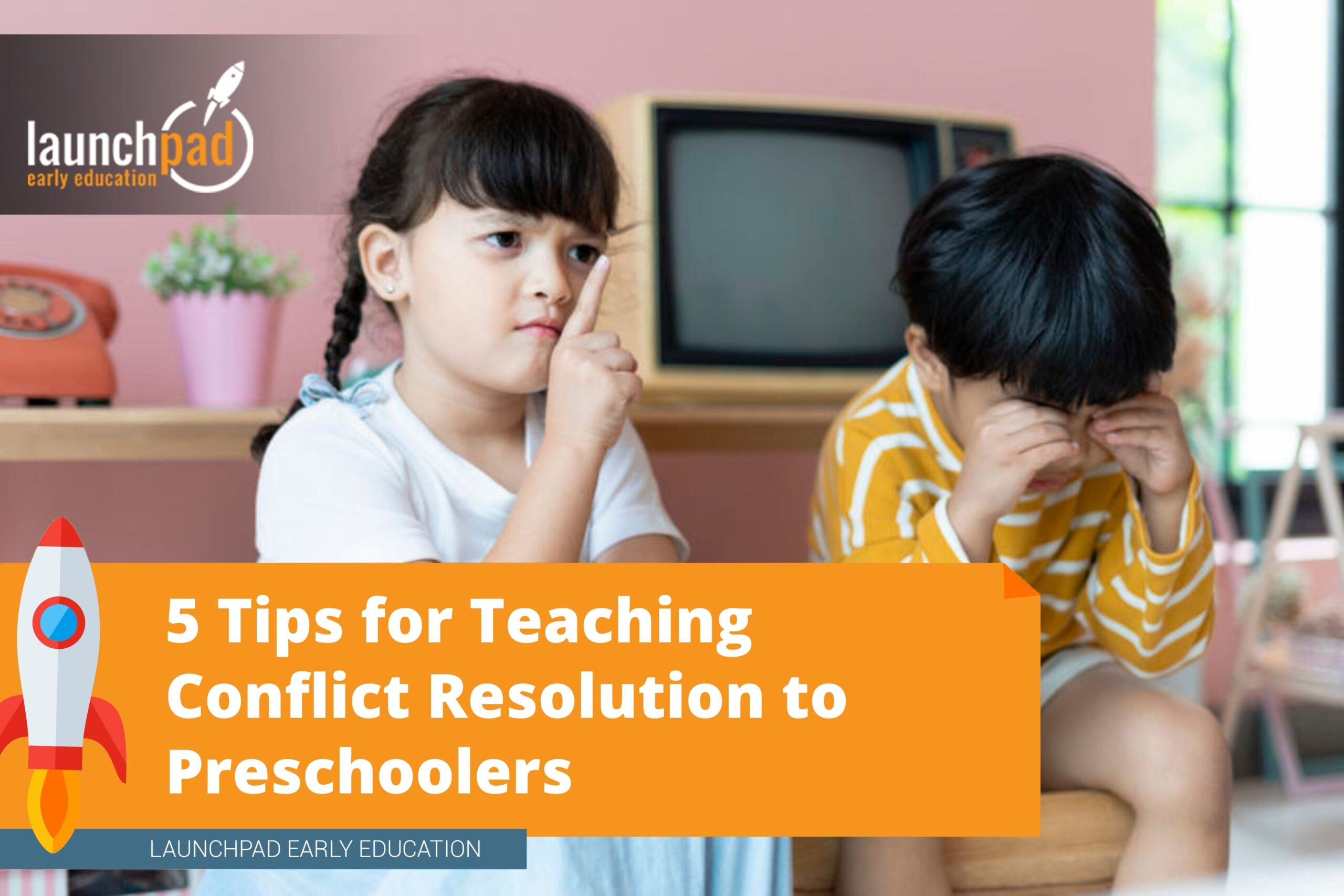Like adults, young kids also encounter conflict from time to time. It’s a normal part of growing up. Building friendships isn’t always a smooth journey for children. There will be a few bumps along the road every now and then. While some conflicts and disagreements among peers may be minor, leaving them unaddressed can leave a permanent dent in one’s relationships. This is why teaching conflict resolution to preschoolers is important.
Learning how to resolve conflicts without resorting to fighting is one of the essential skills a preschooler needs to develop. This is crucial when it comes to learning how to maintain healthy friendships and enjoying social interactions, both in and out of school. Healthy conflict resolution skills also enable young kids to effectively communicate their thoughts and feelings, and be able to listen to the needs of others.
It’s never too early for a child to develop these skills. You can teach your little one how to handle tricky social situations by trying out these tips for teaching conflict resolution to preschoolers.
Teach strategies for managing strong emotions
Managing strong emotions isn’t something that comes naturally to kids. We aren’t born with the innate ability to regulate negative feelings, such as anger or frustration. While it’s important that children know that there’s nothing wrong with feeling strong emotions, it’s equally important for them to understand that it’s how they respond to these emotions that makes all the difference.
Preschoolers may express anger by screaming, yelling, or throwing a tantrum. However, we need to teach them that these reactions won’t fix the problem or resolve their conflicts. Instead, we need to teach them some strategies to help them remain calm when they get upset. For example, teach little ones how to take deep breaths, or have them count from one to ten. These strategies may seem simple, but they are a vital step in resolving any conflict.
Encourage listening
Effective communication is key when it comes to resolving conflicts. It’s important for children to learn the value of speaking respectfully and listening to reach a common ground and arrive at a solution. Help your little one learn that conflict resolution needs to involve a calm discussion between the people involved. Highlight the importance of using the right words when expressing their thoughts and feelings.
Listening also needs to be encouraged, though children may find it challenging to listen to each other, especially when they’re still angry or upset. In this case, it’s best to wait until your child is calm before addressing the conflict.
Brainstorm solutions together
As parents, we may often find ourselves telling our kids what to do in order to fix a problem or resolve a conflict. However, if we want our kids to learn life skills needed for conflict resolution, it is best to try to find a solution together. Brainstorm potential solutions and list them down on paper. If you have younger kids, keep the options simple and limited. The goal is to arrive at a solution that is satisfactory for all involved. Then, go through each item and find the one that will work best.
Empathize
What seems like a minor friendship issue for adults can feel like a bigger deal for preschoolers. Even the tiniest disagreement can be emotionally overwhelming for them. Make sure your child knows you’re there to support him or her. Be sure to listen, understand and empathize.
If your child comes to you one day to vent about a conflict with a peer at school, express that you understand why he or she feels upset. Show your children that you understand what they’re going through. Coming up with a solution may not be what’s needed at the moment. So, be sure to provide them the emotional support they need as they process their own emotions.
Emphasize fairness
Teaching children the importance of fairness and kindness should begin early on. Make it a habit to incorporate these values into your conversations. Acknowledge, recognize, and maybe even consider giving a reward when you catch your child displaying these values. Better yet, set a good example at home for children to follow.
Conflict is part of life that both children and adults will encounter from time to time. Help your little one experience healthy friendships and social interactions by teaching conflict resolution to your preschooler.
For more parenting tips and resources, or if you’re looking for the best quality preschool education, contact Launchpad Early Education.


